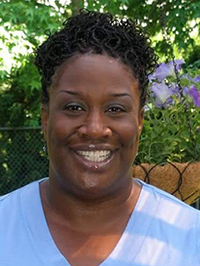Behavioral Health Incarceration Trends Women August 30, 2018
In Multnomah County, Oregon, we are committed to addressing racial disparities in our local justice system, and to addressing the unique needs of those most directly impacted by jail incarceration.
One population that is particularly vulnerable to justice-system involvement is people with mental illness. In 2015, we conducted a study to identify ways in which we could safely divert these people away from jail and into other treatment services. Through our Mental Health Jail Diversion Feasibility Study, we discovered that African Americans who struggle with mental illness are over-represented in the local jail.
This was compounded by an additional report in 2016—released by Multnomah County in partnership with the MacArthur Foundation’s Safety and Justice Challenge—that found African Americans in the county were six times more likely than whites to be in jail, despite only representing 6 percent of the local population.
Further, data provided by the county’s Department of Community Justice in 2017 showed that women with mental illness were sanctioned to jail more frequently on probation violations than women who were not struggling with mental health concerns. And, once in jail, women with mental illness stayed longer.
Based on these findings, Multnomah County’s public safety partners realized that we needed to develop more tailored responses to women—particularly women of color—who are involved in the justice system and suffering from mental illness.
This Fall, we are excited to launch one of these strategies: the first-of-its-kind transitional housing program in the county for adult women involved in the criminal justice system. The Diane Wade House will provide gender-responsive, trauma-informed services that are also Afrocentric. This means that residents, who must be referred to the program, will have access to culturally specific mental health stabilization and support services.
In addition to dormitory-style housing, the Diane Wade House will offer a variety of daytime services, including mentoring and life-skills programs. It is intended to be a low-barrier, transitional housing program, meaning that its eligibility requirements aim to reduce barriers to entry rather than place undue burdens on those who need housing and services.
The home will serve 38 justice-involved women referred by the Multnomah County Department of Community Justice and Multnomah County Mental Health and Addiction Services. Twenty-one of those beds will be funded by the Safety and Justice Challenge, which supports efforts like ours to reduce unnecessary incarceration without compromising public safety—particularly for those struggling with mental health or addiction issues.

Diane Wade has a special connection to Multnomah County. A parole and probation officer with the county’s Department of Community Justice, she was a leader in the African American community and best known for her advocacy and passion for justice-involved women. Wade worked with adults in Multnomah County from May 1999 until she passed away in October 2010. Most of her work was with women of color as a lead parole and probation officer with the African American Program as well as the Gang Unit.
As part of community-involvement requests from both the Safety and Justice Challenge and the Multnomah County Board of Commissioners, community members are providing input and feedback for the women’s program. This includes women who are currently or previously involved in the justice system. The Department of Community Justice will also launch a Community Advisory Board, made up of justice-involved women, to help guide ongoing program development and operations. The Advisory Board will include a current resident of the Diane Wade House.
Through these efforts, Multnomah County seeks to reduce the overrepresentation of women with mental illness in the criminal justice system, and help women develop a foundation for future stability and success.

